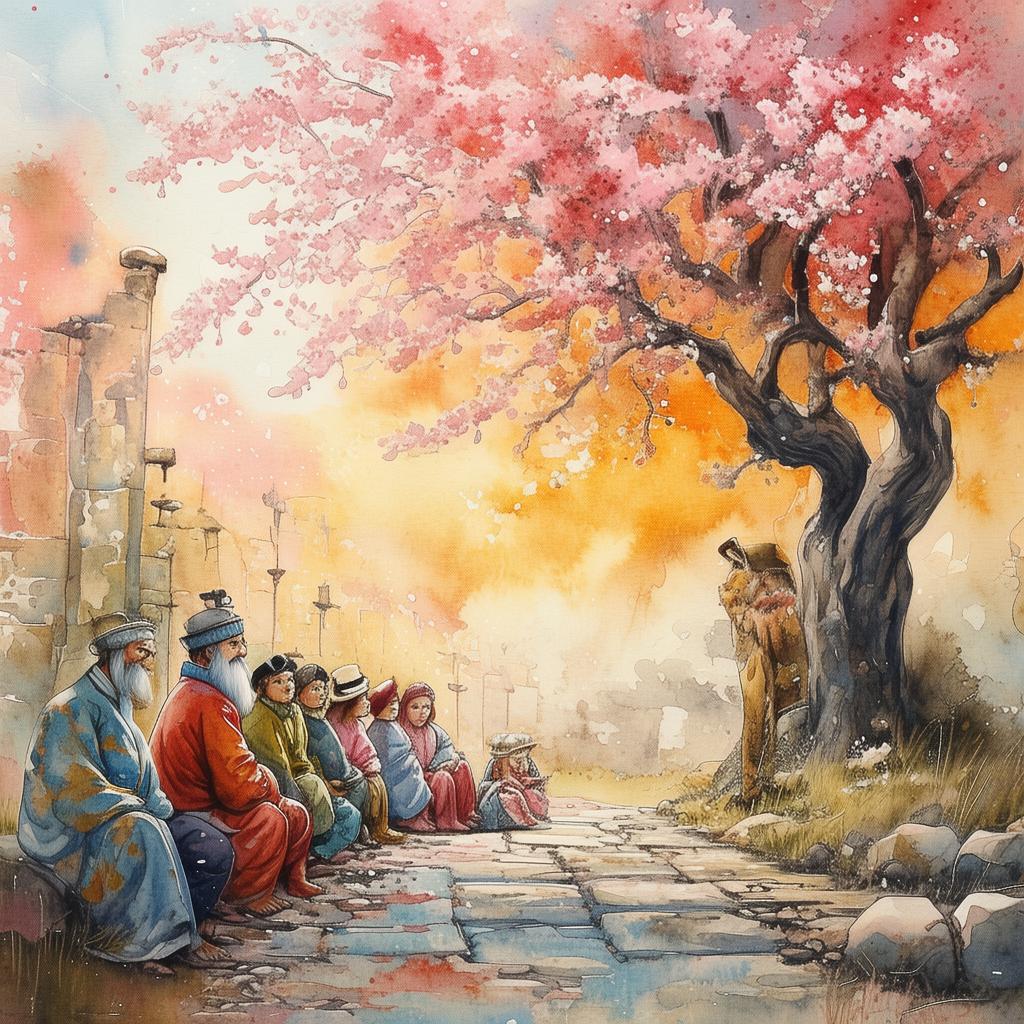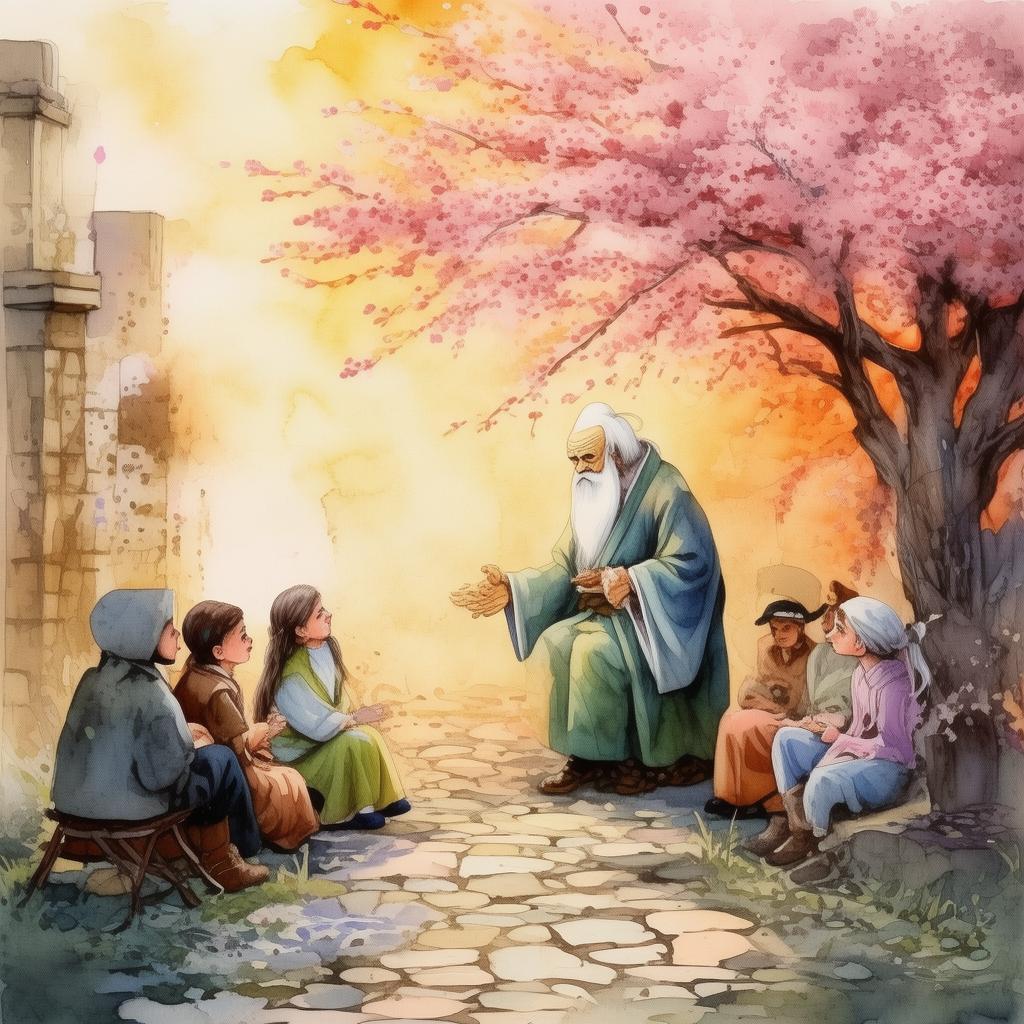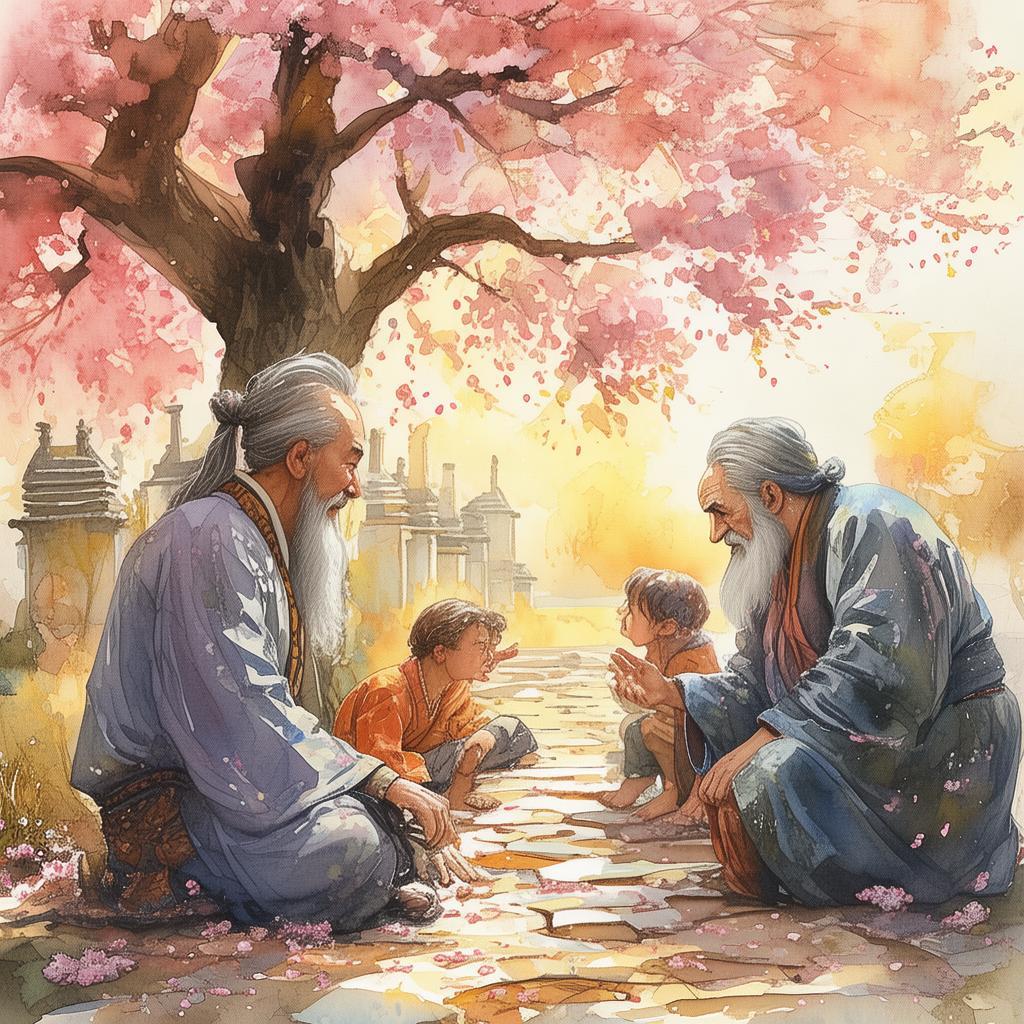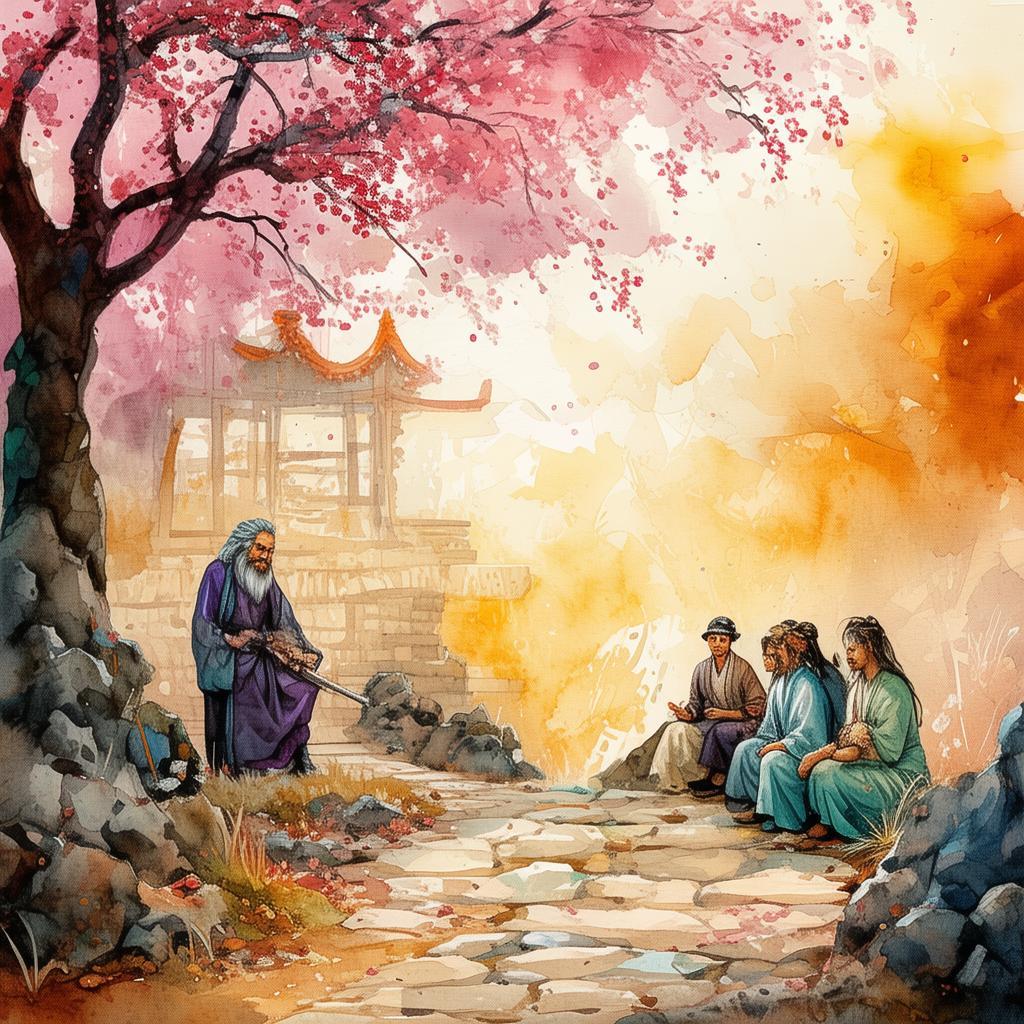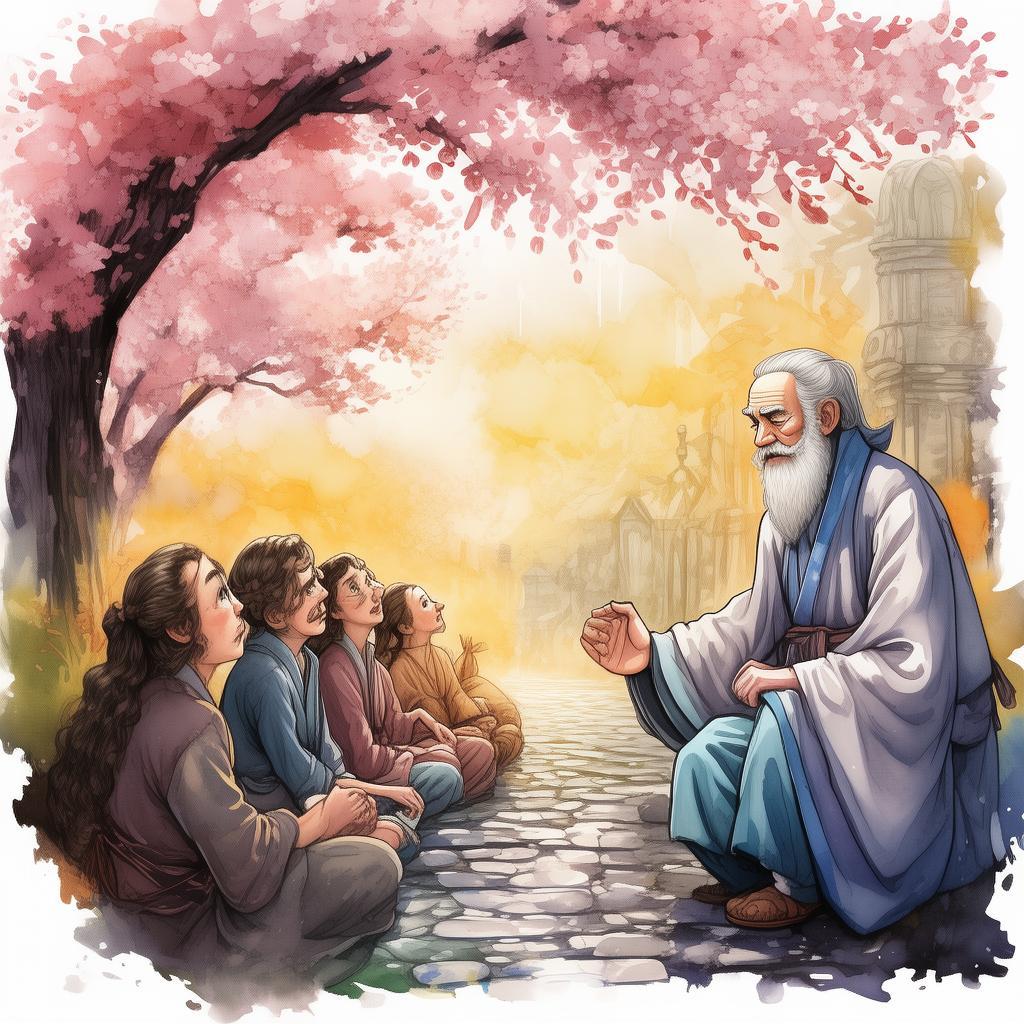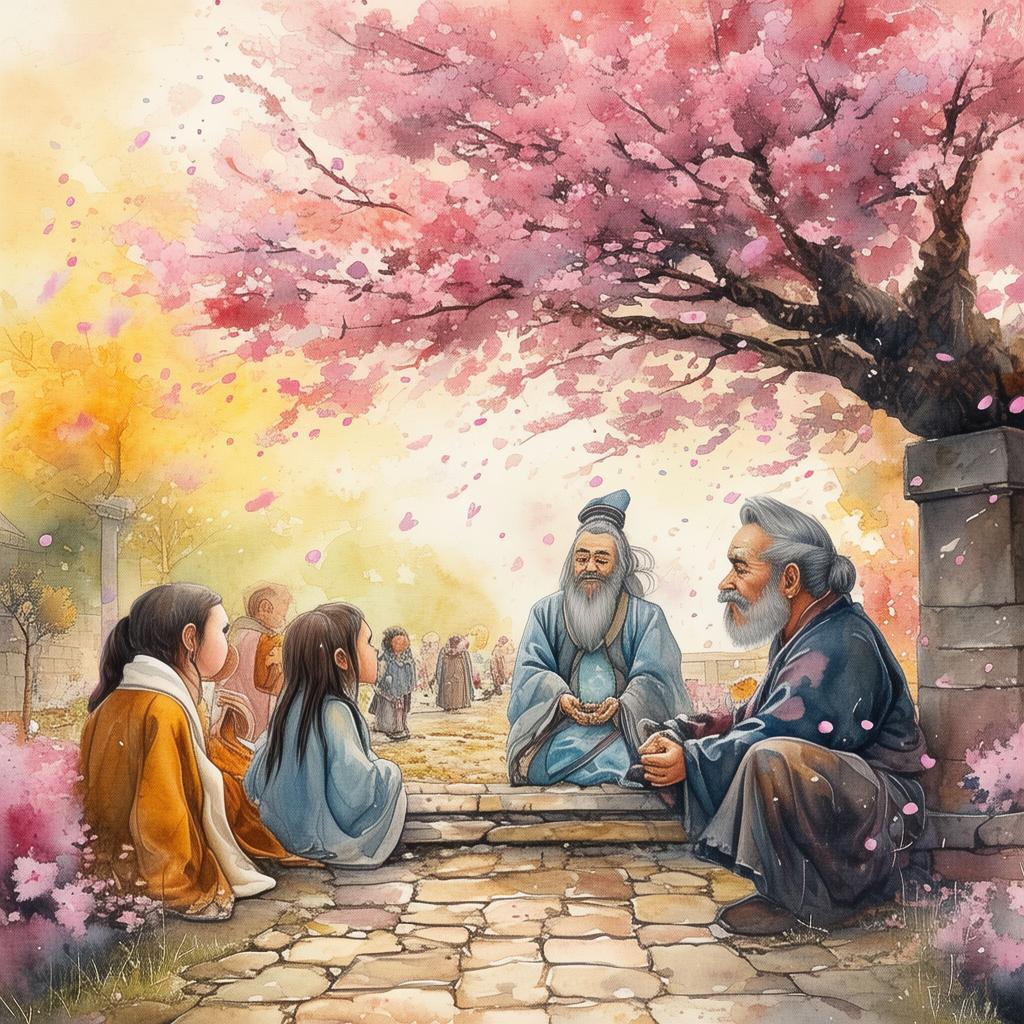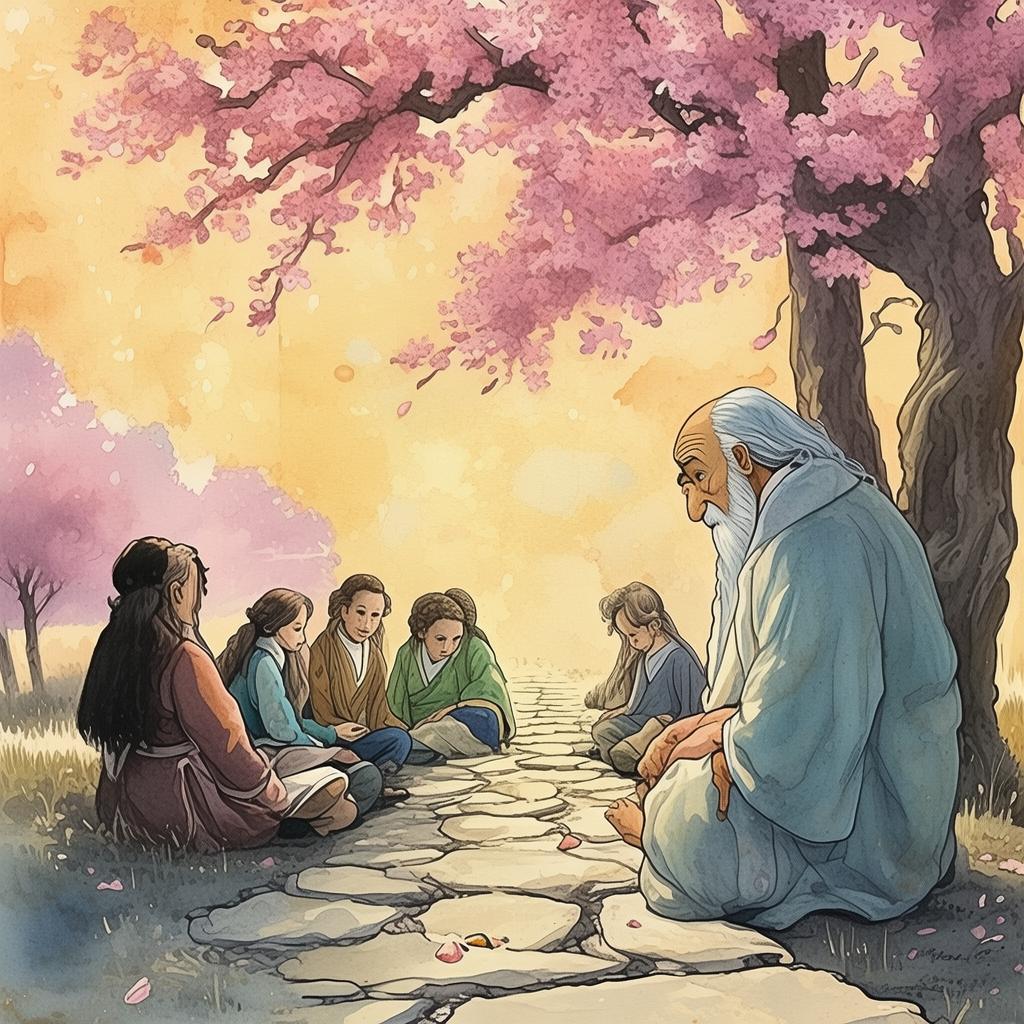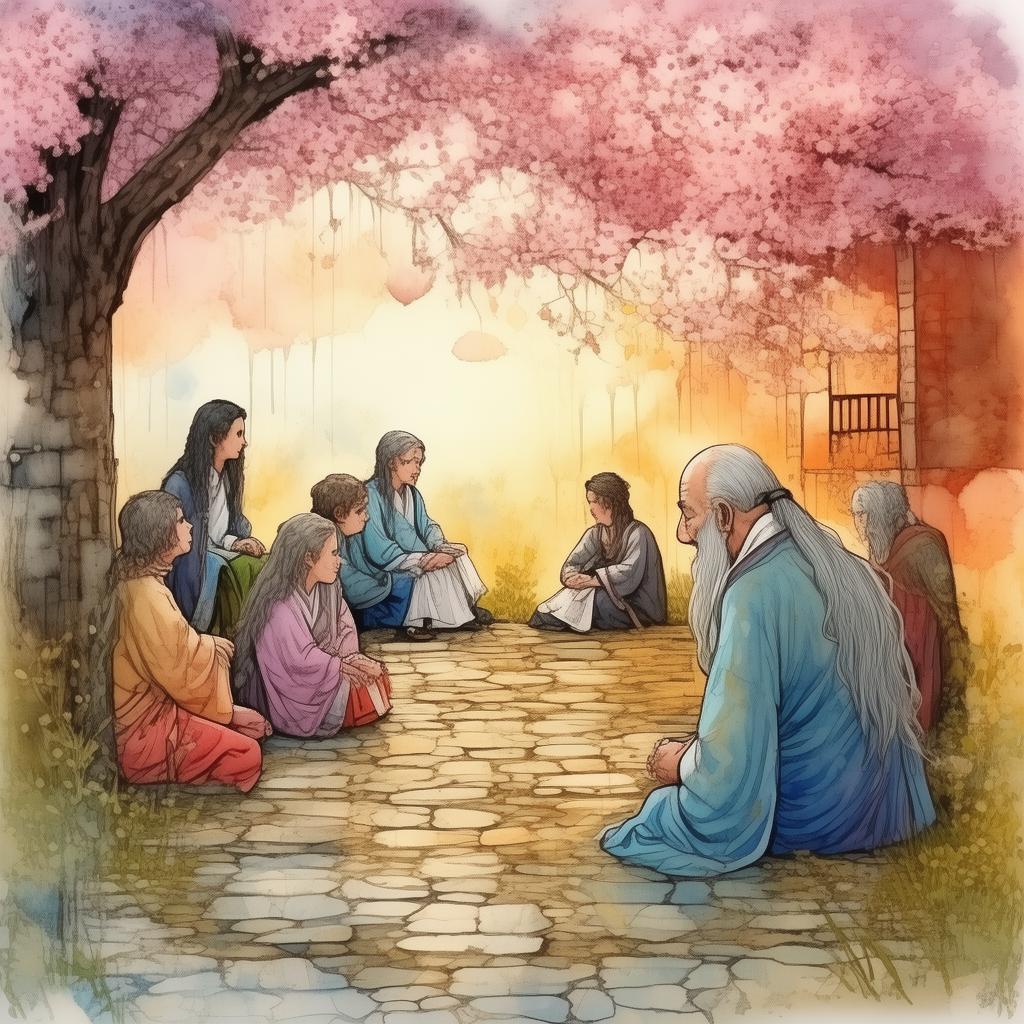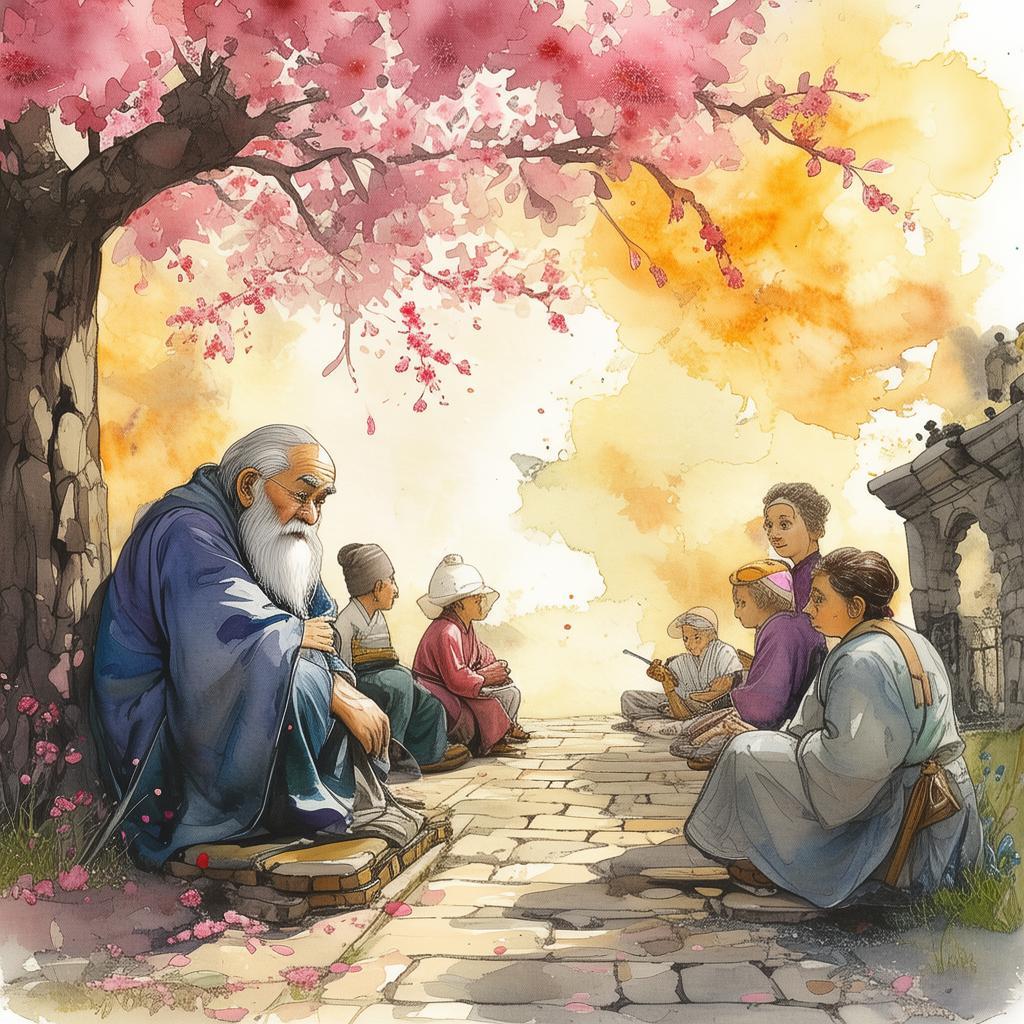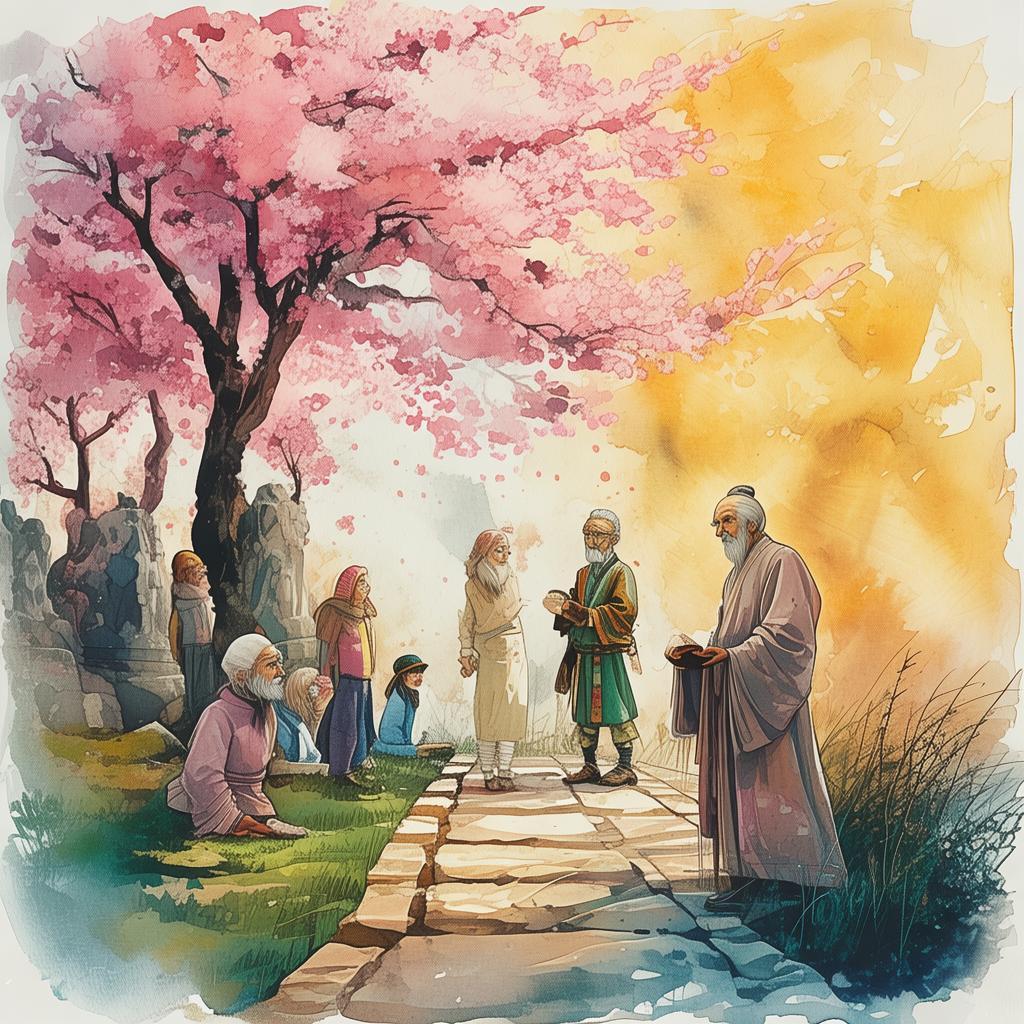Time-Weaved Reflections: The Paradox of the Eloquent Sage
In the ancient land of Lingxia, there lived a sage known for his profound wisdom and eloquence. His name was Master Hua, and he was the keeper of the ancient scrolls that contained the secrets of the idiomatic past. These scrolls were said to hold the power to travel through time, allowing one to witness the origins of idioms and understand their true meanings.
Master Hua had always been fascinated by the idioms that adorned the walls of his study. He would ponder over their meanings, trying to unravel the mysteries they held. One day, as he was leafing through an ancient scroll, he stumbled upon an idiom that had always intrigued him: "The mirror of the past reflects the future."
Curiosity piqued, Master Hua decided to test the scroll's power. He recited the idiom aloud, and to his astonishment, a shimmering portal appeared before him. Without hesitation, he stepped through, finding himself in a bustling marketplace of ancient Lingxia.
As Master Hua wandered through the market, he marveled at the sights and sounds of the past. The air was filled with the scent of exotic spices, and the sounds of merchants haggling filled the air. He felt a deep sense of nostalgia, as if he had returned to a place long forgotten.
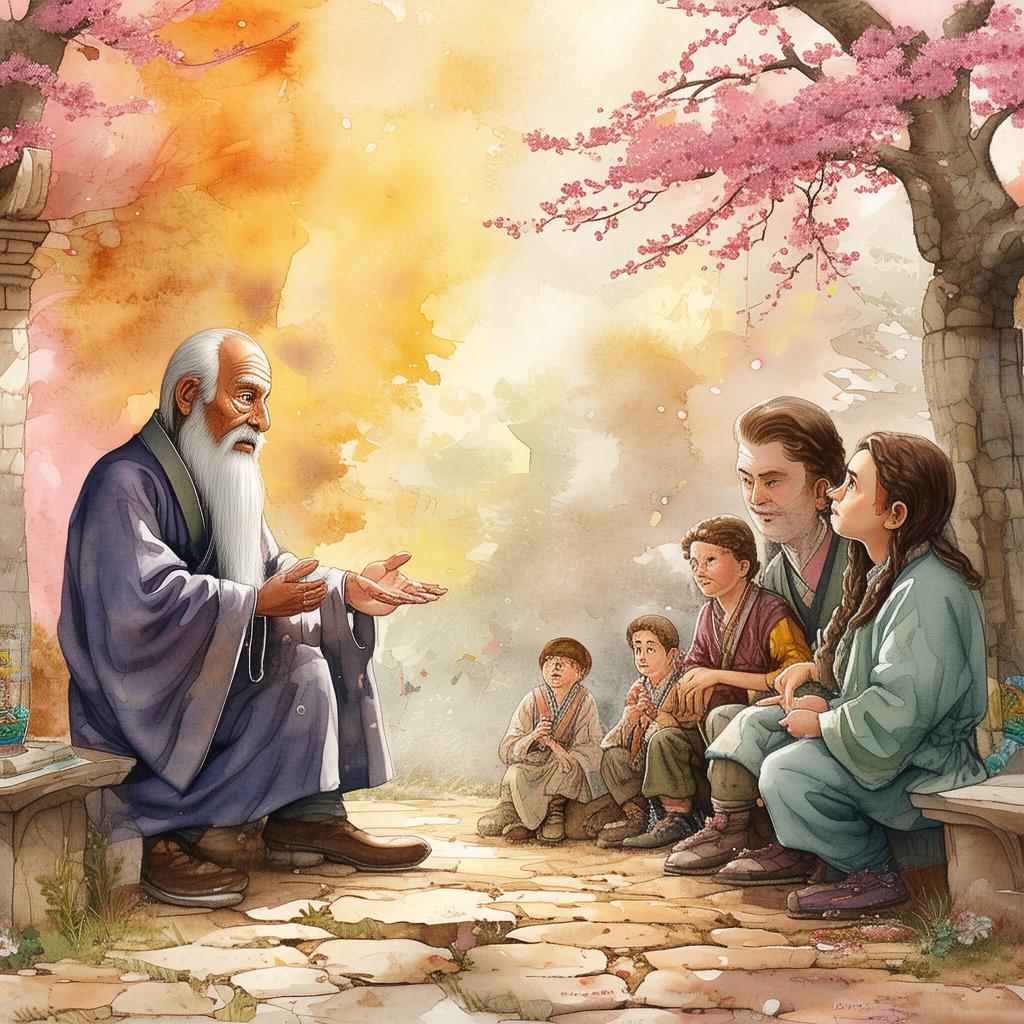
Master Hua's journey through time was not just a visual one. He began to experience the idioms as they were meant to be understood, through the eyes and ears of the people who first used them. The idiom "Time waits for no man" became a stark reality as he witnessed a young man, driven by ambition, racing against the sun to complete his work before the day's end.
As he continued his journey, Master Hua found himself in a serene garden, where the idiom "Silence is golden" seemed to ring true. A wise old man sat under a cherry blossom tree, teaching a young student the value of patience and the importance of listening.
It was during this time that Master Hua realized the true power of idioms. They were not just words; they were windows into the human experience, capturing the essence of life's most profound truths. He began to understand that the idiomatic past was not just a reflection of the past, but a mirror that held the potential to shape the future.
As Master Hua delved deeper into his journey, he encountered a paradox. The more he learned about the idiomatic past, the more he realized that his own actions in the present were shaping the future. The idiom "Actions speak louder than words" took on a new meaning as he watched his own actions ripple through time, affecting the lives of those around him.
One day, as Master Hua was pondering this paradox, he met a young woman who was searching for her lost childhood memories. She had been told that her memories were locked away in the idiomatic past, and she was determined to find them. Master Hua, moved by her determination, decided to help her.
Together, they embarked on a quest to uncover the lost memories, using the idioms as a guide. They traveled through the past, witnessing the origins of idioms like "A drop in the bucket" and "A penny for your thoughts." Along the way, they learned that the idiomatic past was not just a place of reflection, but a place of growth and change.
As they reached the final memory, Master Hua realized that the young woman's lost memories were not just about the past, but about the present. She had forgotten the lessons she had learned as a child, and it was now her task to relearn them. Master Hua realized that this was true for him as well. The idiomatic past was a mirror that reflected his own growth and the lessons he needed to learn.
With the young woman's memories restored, Master Hua knew it was time to return to his own time. As he stepped through the portal, he felt a sense of fulfillment. He had not only learned about the idiomatic past, but he had also learned about himself.
Back in his study, Master Hua sat down and began to write. He poured his experiences into a new scroll, documenting the journey that had changed his life. He realized that the idiomatic past was not just a place of reflection, but a place of transformation.
As Master Hua finished writing, he looked out the window at the modern world outside. He understood that the idiomatic past was not confined to the past; it was a timeless truth that could be accessed by anyone who sought it. He decided to share his knowledge, to help others find the wisdom hidden within the idioms.
Master Hua's story spread far and wide, inspiring people to look beyond the surface of words and to understand the deeper truths they held. He became known as the Eloquent Sage, not just for his wisdom, but for his ability to bridge the gap between the idiomatic past and the present.
And so, the tale of Master Hua and the idiomatic past continued, a testament to the power of words and the enduring truth that the past, present, and future are all connected through the timeless wisdom of the idiomatic past.
✨ Original Statement ✨
All articles published on this website (including but not limited to text, images, videos, and other content) are original or authorized for reposting and are protected by relevant laws. Without the explicit written permission of this website, no individual or organization may copy, modify, repost, or use the content for commercial purposes.
If you need to quote or cooperate, please contact this site for authorization. We reserve the right to pursue legal responsibility for any unauthorized use.
Hereby declared.
